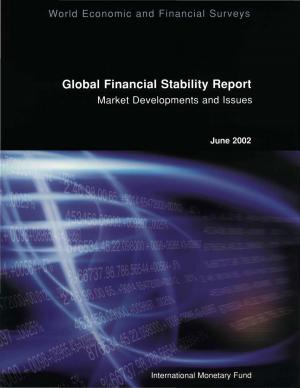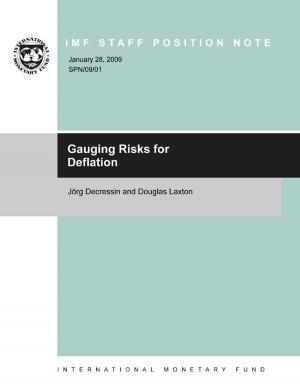Central America: Challenges Following the 2008-09 Global Crisis
Business & Finance, Economics, Public Finance, Finance & Investing, Banks & Banking, Macroeconomics| Author: | Marco Mr. Pinon, Alejandro Mr. López Mejía, Mario Garza, Fernando Mr. Delgado | ISBN: | 9781475572018 |
| Publisher: | INTERNATIONAL MONETARY FUND | Publication: | June 28, 2012 |
| Imprint: | INTERNATIONAL MONETARY FUND | Language: | English |
| Author: | Marco Mr. Pinon, Alejandro Mr. López Mejía, Mario Garza, Fernando Mr. Delgado |
| ISBN: | 9781475572018 |
| Publisher: | INTERNATIONAL MONETARY FUND |
| Publication: | June 28, 2012 |
| Imprint: | INTERNATIONAL MONETARY FUND |
| Language: | English |
Central America, Panama, and the Dominican Republic coped well with the global financial crisis of 2008-09. The impact was generally less severe and shorter lived than in previous episodes, the balance of payments adjustment was orderly, and the stability of the financial system was not compromised. This resilience can be attributed to a large extent to the strengthening of the fiscal frameworks, monetary management, and financial reforms conducted in the years preceding the global crisis. Nevertheless, the region faces considerable challenges for the period ahead, including the need to raise medium term growth above historical levels and protect macroeconomic and financial stability. This book argues that meeting these challenges will have to come from within, in light of the anticipated modest demand growth from trade partners. Raising growth in the region will depend on the adoption of structural reforms that generate substantial productivity gains. Rebuilding fiscal space and securing debt sustainability will hinge on efforts to increase tax revenue and reorienting spending to social and investment priorities. In the non-officially dollarized economies, it will also be essential to strengthen the monetary policy frameworks to keep inflation low and increase exchange rate flexibility, and improve financial regulation and supervision.
Central America, Panama, and the Dominican Republic coped well with the global financial crisis of 2008-09. The impact was generally less severe and shorter lived than in previous episodes, the balance of payments adjustment was orderly, and the stability of the financial system was not compromised. This resilience can be attributed to a large extent to the strengthening of the fiscal frameworks, monetary management, and financial reforms conducted in the years preceding the global crisis. Nevertheless, the region faces considerable challenges for the period ahead, including the need to raise medium term growth above historical levels and protect macroeconomic and financial stability. This book argues that meeting these challenges will have to come from within, in light of the anticipated modest demand growth from trade partners. Raising growth in the region will depend on the adoption of structural reforms that generate substantial productivity gains. Rebuilding fiscal space and securing debt sustainability will hinge on efforts to increase tax revenue and reorienting spending to social and investment priorities. In the non-officially dollarized economies, it will also be essential to strengthen the monetary policy frameworks to keep inflation low and increase exchange rate flexibility, and improve financial regulation and supervision.















